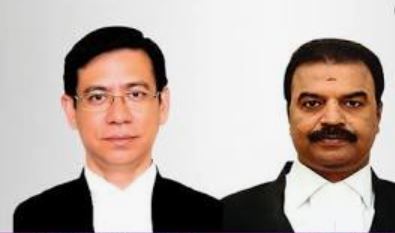Introduction to Judicial Nominations
The Supreme Court Collegium has made a groundbreaking recommendation by nominating Justice N. Kotiswar Singh and Madras High Court Acting Chief Justice R. Mahadevan for elevation to the apex court. This decision, announced on July 11, 2024, is poised to bring a significant shift in the Indian judiciary by enhancing its diversity and ensuring better regional representation.
The Historic Nomination of Justice N. Kotiswar Singh
Justice N. Kotiswar Singh’s nomination is particularly historic. If confirmed, he will be the first judge from Manipur, a state recently ravaged by ethnic violence, to be elevated to the Supreme Court. This move underscores the Collegium’s recognition of the importance of including voices from conflict-affected regions in the highest echelons of the judiciary.
Justice Singh, currently serving as the Chief Justice of the High Court for Jammu and Kashmir and Ladakh, has a distinguished judicial career. His elevation is seen as a step towards providing much-needed representation to the North-Eastern states in the Supreme Court. His tenure, set to continue until his retirement on February 28, 2025, will be a significant period for reinforcing judicial inclusion.
Justice R. Mahadevan’s Contribution to Diversity
The Collegium’s nomination of Justice R. Mahadevan is another stride towards enhancing the diversity of the Supreme Court. Justice Mahadevan, who belongs to a backward community in Tamil Nadu, is expected to bring invaluable perspectives to the Bench. The Collegium’s resolution highlighted his suitability for the position, noting his seniority as the third-ranking judge in the Madras High Court.
Justice Mahadevan’s appointment is intended to address the longstanding need for greater representation of backward communities in the judiciary. His elevation will not only contribute to the Bench’s diversity but also exemplify the Collegium’s commitment to inclusivity and social justice.
The Functioning of the Supreme Court Collegium
The Supreme Court Collegium, led by Chief Justice of India D.Y. Chandrachud, operates as a crucial body in the judicial appointment process. The Collegium’s decision-making process involves meticulous evaluation of candidates’ qualifications, seniority, and suitability for the Supreme Court. The recent recommendations were made to fill vacancies created by the retirements of Justices Aniruddha Bose and A.S. Bopanna earlier this year.
Regional and Community Representation
The emphasis on regional and community representation in the Collegium’s recommendations reflects a broader vision of a balanced and inclusive judiciary. By nominating Justices from diverse backgrounds, the Collegium aims to ensure that the Supreme Court better reflects India’s multifaceted society. This approach not only enhances the Court’s legitimacy but also enriches its deliberations with varied perspectives.
The Impact of These Nominations
The elevation of Justices Singh and Mahadevan is expected to have far-reaching implications for the judiciary. Their presence on the Supreme Court Bench will likely influence decisions on critical issues, including those affecting marginalized communities and conflict-ridden regions. Moreover, their appointments serve as a precedent for future nominations, encouraging a more representative judicial selection process.
The Ongoing Debate on the Collegium System
The Collegium system, despite its achievements, remains a subject of debate. Critics argue that it lacks transparency and accountability, while proponents maintain that it preserves judicial independence. The recent nominations may reignite discussions on the need for reforms in the judicial appointment process, particularly regarding the balance between merit and representation.
Conclusion: A Step Towards Judicial Inclusivity
The Supreme Court Collegium’s recommendation to elevate Justices N. Kotiswar Singh and R. Mahadevan is a monumental step towards judicial inclusivity. Their appointments will enhance the Supreme Court’s diversity and ensure better regional and community representation. As the judicial landscape evolves, such nominations are crucial for fostering a more inclusive and just legal system in India.
Soumya Smruti Sahoo is a seasoned journalist with extensive experience in both international and Indian news writing. With a sharp analytical mind and a dedication to uncovering the truth, Soumya has built a reputation for delivering in-depth, well-researched articles that provide readers with a clear understanding of complex global and domestic issues. Her work reflects a deep commitment to journalistic integrity, making her a trusted source for accurate and insightful news coverage.



